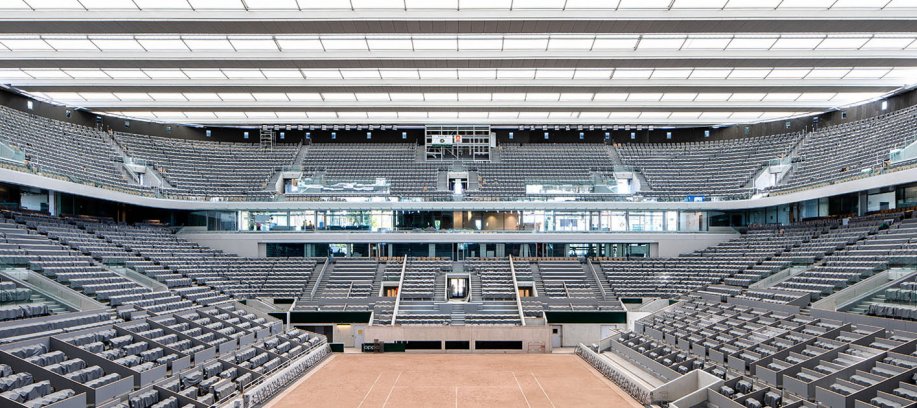
Textile refinement at Lord’s
Luminosity, sun protection and acoustics prioritised in installations.

26th July 2024
Innovation in Textiles
|
Paris
Over 10,000 square metres of Serge Ferrari flexible composite canvases have been installed at several Paris Olympic Games sites over just a few days ahead of today’s opening.
The group, headquartered in Saint Jean de Soudain, France, designs, develops and manufactures composite materials for lightweight architecture and outdoor equipment applications, targeted primarily at four strategic markets – solar protection, tensile architecture, modular structures and furniture.
This year, the Olympic committee has restricted the construction of new infrastructure for the tournament and the membranes have therefore been carefully selected for their combination of aesthetics and technical performance.
In Paris, Serge Ferrari canvases will notably cover part of the grounds of the Grand Palais, where the fencing events take place, primarily to reduce luminosity. In the Olympic village, the emphasis has been on sun protection with the company’s canvases, while at the Le Bourget press centre, acoustics have been prioritised. A large percentage of recycled fibres has been incorporated into the canvases.
Roland Garros stadium
Serge Ferrari has been the official supplier of flexible composite fabrics for the Olympic Games since the tournament in Sydney in 2000 and its canvases will also again cover the Philippe-Chatrier court at Roland-Garros where the tennis events are played.
The company’s materials are already present in the retractable roof of the Roland Garros stadium which was installed in 2022.
The Flexlight Xtrem TX30 membrane selected for the Philippe-Chatrier court combines an ultra-resistant coating formula and a PVDF crosslinked surface treatment. Its crosslinked formulation has previously only been used for rigid materials and was selected for its advanced resistance to oxidation and erosion caused by bad weather.
Maintaining natural light once the roof was deployed in the stadium was another requirement, enabling players and the public to move around in good conditions. Preserving uniform levels of light also helps control TV match coverage.
The benefits of lightness and flexibility are the prerogative of flexible composite materials. This light weight contributes to the building’s unique design and facilitates the creation of complex forms. The mobile cover’s overall weight has been reduced by incorporating the membrane, enabling the entire assembly to be opened and closed in a minimum amount of time.
The membrane’s unique resistance to weathering over time will preserve its structural and aesthetic performance for several decades. Its development followed a stringent process, validated by world-class experts in polymer photo-ageing.

Business intelligence for the fibre, textiles and apparel industries: technologies, innovations, markets, investments, trade policy, sourcing, strategy...
Find out more